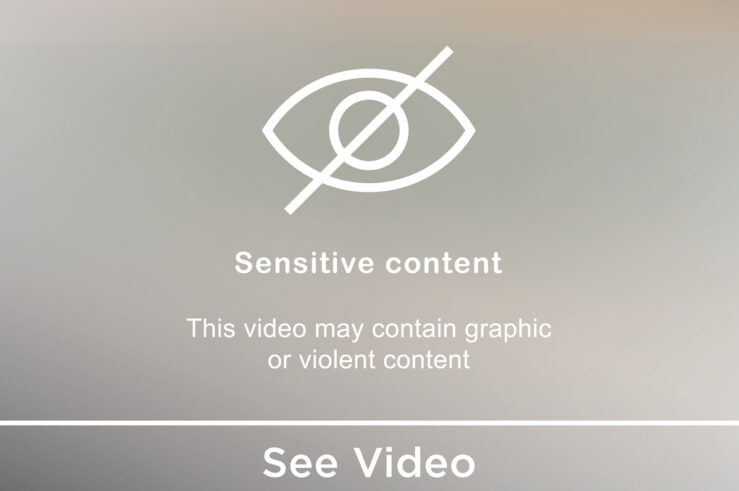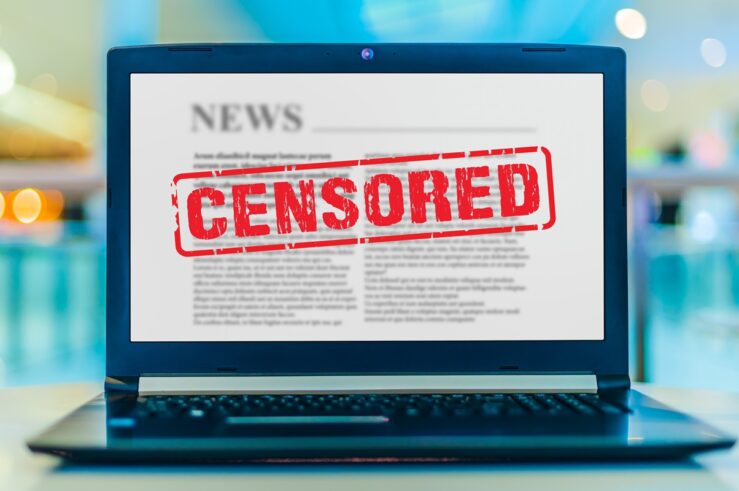Net Neutrality and the Paradox of Private Censorship
With yet another net-neutrality order set to take effect (the link is to the draft version circulated before today’s Federal Communications Commission vote; the final version is expected to be published in a few weeks) and to impose common-carriage requirements on broadband internet-access service (BIAS) providers, it is worth considering how the question of whether ... Net Neutrality and the Paradox of Private Censorship
Murthy Oral Arguments: Standing, Coercion, and the Difficulty of Stopping Backdoor Government Censorship
With Monday’s oral arguments in Murthy v. Missouri, we now have more of a feel for how the U.S. Supreme Court appears to be considering the issues of social-media censorship—in this case, done allegedly at the behest of federal officials. In the International Center for Law & Economics’ (ICLE) amicus brief in the case, we ... Murthy Oral Arguments: Standing, Coercion, and the Difficulty of Stopping Backdoor Government Censorship
NetChoice, the Supreme Court, and the State Action Doctrine
George Orwell’s “Nineteen Eighty-Four” is frequently invoked when political actors use language to obfuscate what they are doing. Ambiguity in language can allow both sides to appeal to the same words, like “the First Amendment” or “freedom of speech.” In a sense, the arguments over online speech currently before the U.S. Supreme Court really amount ... NetChoice, the Supreme Court, and the State Action Doctrine
ICLE’s Amicus Briefs on the Future of Online Speech
Over the past few months, we at the International Center for Law & Economics (ICLE) have endeavored to bring the law & economics methodology to the forefront of several major public controversies surrounding online speech. To date, ICLE has engaged these issues by filing two amicus briefs before the U.S. Supreme Court, and another in ... ICLE’s Amicus Briefs on the Future of Online Speech
ICLE Files Amicus in NetChoice Social-Media Regulation Cases
Through our excellent counsel at Yetter Coleman LLP, the International Center for Law & Economics (ICLE ) filed an amicus brief with the U.S. Supreme Court in the Moody v. NetChoice and NetChoice v. Paxton cases. In it, we argue that the First Amendment’s protection of the “marketplace of ideas” requires allowing private actors—like social-media ... ICLE Files Amicus in NetChoice Social-Media Regulation Cases
Health Care and Health Insurance Merger Retrospective: A Personal Law & Economics Experience
My colleagues at the International Center for Law & Economics (ICLE) often engage not only in excellent analysis of proposed mergers and acquisitions, but also have been known to offer retrospectives on past mergers. Today, I want to offer a very personal version of this. A little background: on June 3, 2022, I was diagnosed ... Health Care and Health Insurance Merger Retrospective: A Personal Law & Economics Experience
What Does NetChoice v. Bonta Mean for KOSA and Other Attempts to Protect Children Online?
With yet another win for NetChoice in the U.S. District Court for the Northern District of California—this time a preliminary injunction granted against California’s Age Appropriate Design Code (AADC)—it is worth asking what this means for the federally proposed Kids Online Safety Act (KOSA) and other laws of similar import that have been considered in ... What Does NetChoice v. Bonta Mean for KOSA and Other Attempts to Protect Children Online?
The Marketplace of Ideas: Government Failure Is Worse Than Market Failure When It Comes to Social-Media Misinformation
Today marks the release of a white paper I have been working on for a long time, titled “Knowledge and Decisions in the Information Age: The Law & Economics of Regulating Misinformation on Social-Media Platforms.” In it, I attempt to outline an Austrian law & economics theory of state action under the First Amendment, and ... The Marketplace of Ideas: Government Failure Is Worse Than Market Failure When It Comes to Social-Media Misinformation
Right to Anonymous Speech, Part 3: Anonymous Speech and Age-Verification Laws
An issue that came up during a terrific panel that I participated in last Thursday—organized by the Federalist Society’s Regulatory Transparency Project—was whether age-verification laws for social-media use infringed on a First Amendment right of either adults or minors to receive speech anonymously. My co-panelist Clare Morell of the Ethics and Public Policy Center put ... Right to Anonymous Speech, Part 3: Anonymous Speech and Age-Verification Laws
Minor Matters in Cyberspace: Examining Internet Age-Verification Regulations
I participated yesterday in a webinar panel hosted by the Federalist Society’s Regulatory Transparency Project. The video was livestreamed at YouTube. Below, I offer my opening remarks, with some links. Thank you for having me. As mentioned, I’m a senior scholar in innovation policy at the International Center for Law & Economics (ICLE). This means ... Minor Matters in Cyberspace: Examining Internet Age-Verification Regulations
Right to Anonymous Speech, Part 2: A Law & Economics Approach
We at the International Center for Law & Economics (ICLE) have written extensively on the intersection of the First Amendment, the regulation of online platforms, and the immunity from liability for user-generated content granted to platforms under Section 230 of the Communications Decency Act of 1996. One of the proposals we put forward was that ... Right to Anonymous Speech, Part 2: A Law & Economics Approach
Right to Anonymous Speech, Part 1: An Introduction from First Principles
What is anonymity? Do we have a right to it? And against what other values should this right be balanced when it comes to government regulation? This blog post will be the first in a series that looks at what anonymity is, why it is important, and what tradeoffs should be considered when applying a ... Right to Anonymous Speech, Part 1: An Introduction from First Principles
















